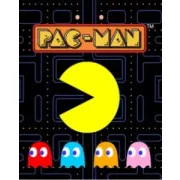
Pacman 30th Anniversary
Hauptsitz
2740 Ella Street Palo Alto, CA 94301 USA Vereinigte Staaten
Über uns
Running the Maze… and the Store: Finding Management Lessons in Pacman 30th Anniversary
Hey fellow gamers! We all love sinking hours into compelling video games, but sometimes it's fun to look beyond the simple "win" condition and explore the underlying mechanics. Today, I want to talk about store management, not in the traditional SimCity or tycoon sense, but through the surprisingly relevant lens of a game we all know and love: Pacman 30th Anniversary .
Why Pacman? Because beneath the simple gameplay of chomping pellets and avoiding ghosts lies a surprisingly robust system of resource management, risk assessment, and strategic planning – skills that are crucial for successful store management, even if you're dealing with pixels instead of products.
Let's dive into how we can experience Pacman, not just as a fun retro arcade game, but as a surprisingly insightful store management simulation.
The Gameplay: More Than Just Eating Pellets
At its core, Pacman 30th Anniversary is about efficiently navigating a maze, consuming resources (pellets), and avoiding threats (ghosts). But let's reframe this classic formula using store management terminology:
The Maze: Think of the maze as your store layout. The design impacts customer flow, product placement (pellet distribution), and accessibility (ghost avoidance). A well-designed store maximizes opportunities for interaction (eating pellets) and minimizes potential dangers (ghost encounters).
Pellets (Resources): Pellets represent your inventory. Each one you "consume" (sell) contributes to your overall score (revenue). Efficiently collecting pellets translates to maximizing sales.
Ghosts (Competition/Challenges): The ghosts symbolize various challenges faced in running a store: competitors, supply chain issues, economic downturns, or even negative customer reviews. Each ghost requires a different strategy to avoid or mitigate its impact. Blinky is the aggressive, relentless pursuer (a direct competitor), Pinky tries to ambush you (unexpected market changes), Inky is unpredictable (unforeseen expenses), and Clyde is the easily distracted one (minor logistical hiccups).
Power Pellets (Temporary Advantages): These represent temporary advantages like promotional campaigns, seasonal sales, or popular product launches. They allow you to temporarily turn the tables on the competition (ghosts) and aggressively increase your revenue stream.
Fruit (Bonuses): Fruit represents occasional opportunities for profit boosts: a bulk discount from a supplier, a sudden spike in demand for a particular product, or even a positive media mention. Grabbing these bonuses efficiently accelerates your growth.
The Player (The Manager): You, the player, are the store manager, responsible for strategizing, allocating resources, and navigating the challenges to ensure the store's (Pacman's) survival and profitability.
Therefore, playing Pacman 30th Anniversary consciously becomes an exercise in resource allocation (choosing the optimal path for pellet collection), risk management (avoiding or strategically engaging with ghosts), and strategic planning (utilizing power pellets effectively).
Tips for Playing (and Managing) Like a Pro:
Now that we've established the analogy, let's look at some practical tips for mastering both the game and the implied store management principles:
Map Your Path: Don't just blindly chase pellets. Plan your route. In a store, this translates to analyzing customer traffic patterns and strategically placing products to maximize visibility and sales. Identify high-traffic areas (areas with denser pellet clusters) and low-traffic areas and adjust your strategy accordingly.
Know Your Competition (Ghosts): Observe the ghosts' behavior. Are they aggressive? Do they patrol specific areas? Understanding their patterns allows you to anticipate their movements and avoid them effectively. Similarly, researching your competitors' strengths and weaknesses helps you position your store for success.
Use Power Pellets Wisely: Don't waste power pellets chasing ghosts haphazardly. Strategically use them when you're surrounded or when you can maximize their impact by clearing a significant portion of the maze. In a store, this means carefully planning your promotional campaigns and ensuring they coincide with periods of high demand or competitor weaknesses.
Prioritize Resources: Not all pellets are created equal. Some are easily accessible, while others require navigating risky areas. Learn to prioritize the "low-hanging fruit" – the easily obtainable resources. In a store, this means focusing on fast-moving products and optimizing their placement.
Adapt to Change: The game's difficulty increases over time, and the ghosts become more aggressive. You need to adapt your strategy accordingly. Similarly, the business landscape is constantly evolving. Be prepared to adjust your operations to respond to changing market conditions, customer preferences, and competitor actions.
Learn from Mistakes: Don't get discouraged by getting caught by a ghost. Analyze what went wrong and adjust your strategy for the next attempt. Failure is a valuable learning opportunity. The same applies to store management. Analyze your losses, identify areas for improvement, and implement changes to avoid repeating the same mistakes.
Conclusion: Game On!
While Pacman 30th Anniversary might seem like a simple arcade game on the surface, it offers surprisingly valuable lessons in strategic thinking, resource management, and risk assessment. By playing with a conscious understanding of these underlying principles, you can not only improve your score but also gain a fresh perspective on the challenges and opportunities of store management. So next time you're munching pellets and dodging ghosts, remember that you're also honing your skills as a potential entrepreneur! Now go forth, conquer the maze, and build your (virtual) empire!